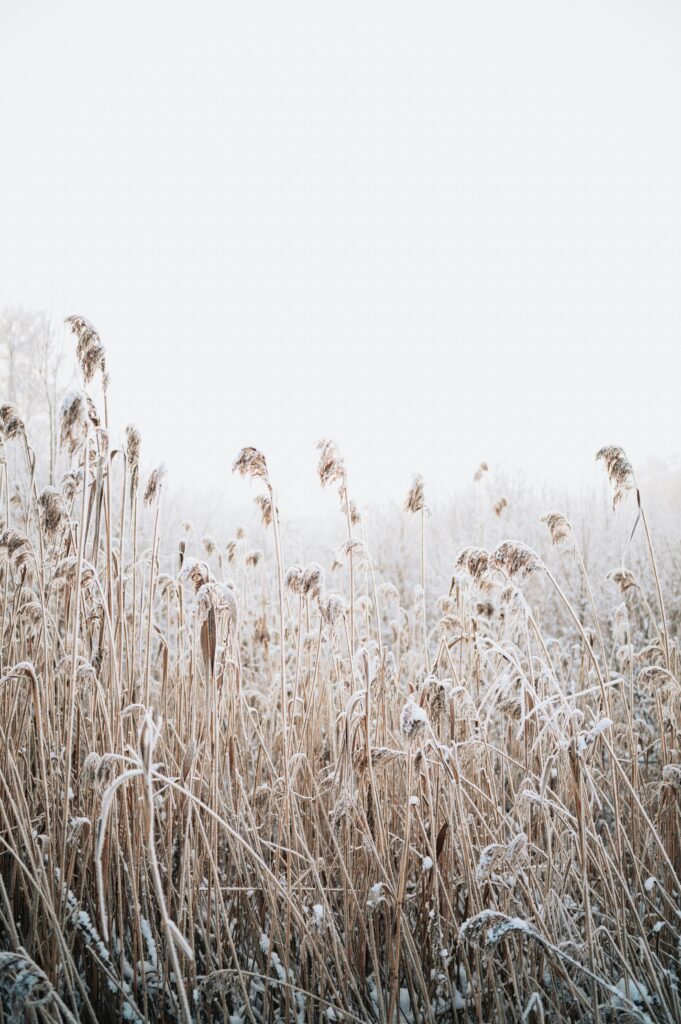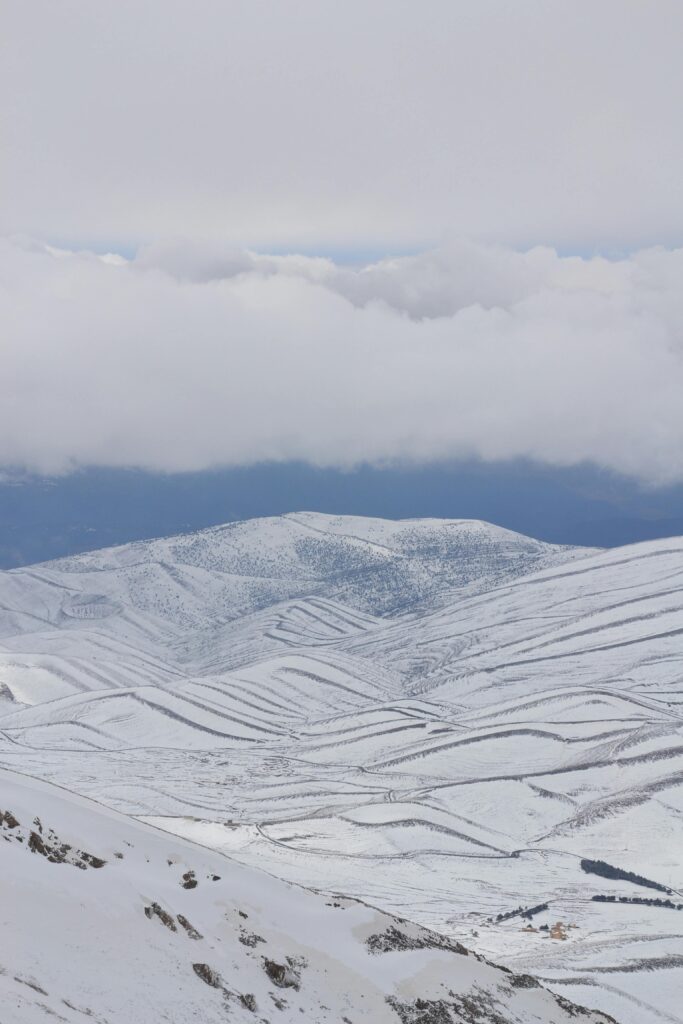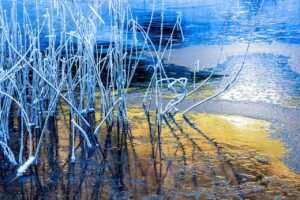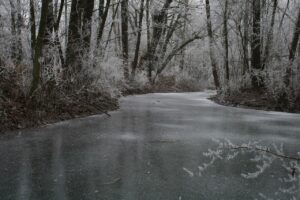During the frigid winter months, a common question among pond owners arises: can fish survive winter in a pond? Some harsh conditions come with this time of year, With freezing temperatures and ice-covered waters, it may seem unlikely for our finned friends to endure such a challenging environment.
However, this article will explore the fascinating ways in which fish adapt and persevere, revealing the secrets behind their ability to survive the long, cold winter in a pond. Prepare to be amazed as we uncover the surprising strategies that allow these resilient creatures to uphold their existence even when faced with nature’s harshest elements.
Fish Adaptation to Winter
Hibernation Behavior
During winter, fish often exhibit hibernation behavior as a survival strategy. They become less active and conserve energy by reducing their metabolic rate. This allows them to cope with the colder temperatures and limited food supply. Hibernation behavior in fish is characterized by reduced movement, slowed breathing, and a decrease in feeding activity.
Antifreeze Proteins
One remarkable adaptation seen in some fish species is the production of antifreeze proteins. These proteins prevent ice crystals from forming in the fish’s tissues, which can be detrimental to its survival. Antifreeze proteins lower the freezing point of the fish’s body fluids, allowing them to survive in sub-zero temperatures. This adaptation is especially crucial for fish living in ponds that experience harsh winters.
Energy Conservation
To conserve energy during winter, fish minimize their movement and seek out sheltered areas in the pond. They will often gather in deeper parts of the water where the temperature is more stable. By reducing their activity levels, fish can conserve energy and survive with limited food resources. During this time, it’s important to provide them with a safe and suitable environment to help them maintain their energy stores.
Factors Affecting Fish Survival
Water Depth
The depth of the water in a pond can significantly impact fish survival during winter. Deeper water provides a more stable environment with less fluctuation in temperature. It also helps prevent the water from freezing completely, creating a refuge for fish. Shallower ponds are more susceptible to freezing over entirely, which can be fatal for fish. Therefore, maintaining a suitable depth is essential for the survival of fish during winter.
Water Quality
water quality is another crucial factor for fish survival, especially during winter. Poor water quality can lead to low oxygen levels, build-up of toxins, and increased stress on the fish. It’s important to ensure adequate water circulation and filtration to maintain good water quality. Regular testing of water parameters such as pH, ammonia, and nitrite levels is also essential to prevent any imbalances that could harm the fish.
Ice Cover
The extent and duration of ice cover on a pond greatly influence fish survival. Thick ice cover prevents the exchange of oxygen between the water and the atmosphere, reducing the oxygen levels in the pond. This can be detrimental to fish, leading to oxygen deprivation and possibly death. Additionally, prolonged ice cover limits sunlight penetration, which affects the growth of aquatic plants and algae, reducing the availability of food for fish.

Preparing the Pond for Winter
Before winter arrives, it’s important to prepare the pond to ensure the well-being of the fish throughout the season.
Removing Debris
Clearing the pond of any debris, such as fallen leaves and twigs, is essential. Decaying organic matter can release harmful toxins into the water and degrade water quality. Regular debris removal helps maintain a clean and healthy environment for the fish.
Trimming Aquatic Plants
Trimming back excess vegetation is necessary before winter sets in. Overgrown aquatic plants can cause oxygen depletion in the water and contribute to poor water quality. By reducing the plant biomass, you help maintain balanced oxygen levels and prevent any potential harm to the fish.
Feeding Fish
As winter approaches, gradually reduce the amount of food you provide to the fish. Their metabolism slows down, and they require less sustenance during this period. It’s crucial not to overfeed them, as uneaten food can pollute the water and lead to nutrient imbalances. Monitor the fish’s appetite and adjust the feeding accordingly.

Providing Adequate Oxygen
During winter, maintaining sufficient oxygen levels in the pond is crucial for the survival of the fish. Several measures can be taken to ensure adequate oxygenation.
Installing an Aerator
An aerator is an effective tool for increasing oxygen levels in the pond. It circulates the water, facilitating oxygen exchange between the air and the water. By creating water movement and preventing stagnation, an aerator helps sustain the fish during winter when oxygen availability is limited.
Using a Deicer
A deicer is useful in areas where the pond tends to freeze completely. It prevents the formation of thick ice cover and allows for gas exchange. By keeping a small area ice-free, fish can access oxygen from the atmosphere, minimizing the risk of oxygen depletion.
Creating Ice Openings
To provide additional oxygenation, it’s beneficial to create small openings in the ice. This can be done by using a floating heater or by pouring hot water on the surface. These openings allow for oxygen exchange and provide an escape route for any accumulated gases beneath the ice.

Maintaining Water Quality
To ensure the health and survival of fish during winter, it’s essential to maintain optimal water quality in the pond.
Monitoring Temperature
Regularly monitoring water temperature is crucial during winter. Sudden drops in temperature can be harmful to the fish, so it’s important to be aware of any drastic changes. If necessary, additional measures such as adjusting the depth of the pond or providing insulation can be taken to protect the fish from extreme temperature fluctuations.
Adjusting pH Levels
Maintaining a stable pH level is important for fish health. Fluctuations in pH can lead to stress and potentially harm the fish. Regular testing and adjustments should be made to keep the pH within the acceptable range for the species in the pond.
Controlling Algae Growth
Algae growth can become problematic during winter, especially in ponds with excessive nutrient levels. Excessive algae can lead to oxygen depletion during nighttime when photosynthesis ceases. Implementing algae control measures, such as reducing nutrient inputs and using algae-eliminating products, can help maintain a healthy balance in the pond.

Feeding Fish During Winter
Feeding fish during winter requires careful consideration to ensure their health and well-being.
Reducing Feeding Frequency
As the fish’s metabolism slows down, their feeding requirements decrease. It’s important to adjust the feeding frequency accordingly. Feeding fish once or twice a week with smaller portions is usually sufficient during winter. Be mindful not to overfeed, as uneaten food can pollute the water and negatively impact water quality.
Choosing Cold-Water Fish Food
Selecting appropriate cold-water fish food is essential for their nutrition during winter. Look for formulas specifically designed for low temperatures. These diets are formulated to be easily digestible and provide the necessary nutrients for the fish’s reduced metabolic rate.
Avoiding Overfeeding
Overfeeding during winter can have detrimental effects on fish health. Excess food can lead to poor water quality, as well as various health issues such as bloating and swim bladder disorder. Always feed the fish in moderation and monitor their response to the food. If they consistently show disinterest or refuse to eat, reduce the amount given.

Predator Considerations
Protecting fish from predators is necessary throughout the year, including winter.
Removing Predators
If predators such as birds or mammals are a significant threat to the fish, take measures to deter them. Implementing scare devices or installing nets can help prevent predation. Regularly inspect the pond for signs of predator activity and take appropriate action if necessary.
Providing Hiding Places
Creating hiding places within the pond can offer protection for the fish against potential predators. Incorporate structures such as submerged rocks, logs, or aquatic plants. These hiding spots provide shelter and reduce the risk of predation.
Fencing the Pond
In cases where predators are persistent, fencing the pond can be a viable option. Install a sturdy fence around the perimeter of the pond to prevent access by larger predators. Make sure the fence is tall enough and offers adequate protection to keep the fish safe.
Fish Species Selection
Choosing the right fish species for your pond is crucial for their survival during winter.
Cold-Tolerant Fish Species
Opt for cold-tolerant fish species that can withstand the low temperatures and adapt to winter conditions. Examples of cold-tolerant species include koi, goldfish, and trout. These species have evolved to survive in a wide range of temperatures and can thrive in ponds that experience winter.
Native Fish Species
Selecting native fish species is beneficial for their adaptation to the local environment. Native fish have evolved to withstand the climate and natural fluctuations in temperature. They are better able to cope with the challenges posed by winter conditions, making them a suitable choice for pond owners seeking sustainable and low-maintenance fish populations.

Protecting the Pond from Extreme Temperature
Extreme temperature fluctuations can be detrimental to the health of fish. Taking measures to protect the pond from rapid cooling or freezing is essential.
Insulating the Pond
Insulating the pond helps buffer against extreme temperature changes. Adding a layer of insulation material, such as straw or pond blankets, on top of the pond surface, reduces heat loss and prevents rapid cooling. This provides a more stable environment for the fish.
Using Floating Ice Shields
Floating ice shields are a practical solution to prevent complete freezing. These devices float on the pond’s surface and create a barrier that restricts ice formation. They help maintain an open area in the pond, allowing for gas exchange and preventing oxygen depletion.
Avoiding Rapid Cooling
To prevent rapid cooling, avoid exposing the pond to sudden drops in temperature. Position the pond away from cold drafts or areas prone to strong winds. This minimizes the risk of extreme temperature fluctuations and ensures a more stable environment for the fish.
Observing Fish Behavior
Monitoring fish behavior during winter provides valuable insights into their well-being and helps identify any potential issues.
Monitoring Fish Activity
Pay attention to the fish’s level of activity during winter. While reduced activity is expected, prolonged periods of inactivity or abnormal behavior could indicate underlying problems. Erratic swimming patterns, gasping at the water surface, or clamped fins may suggest stress or health issues.
Recognizing Signs of Stress
Stressed fish may exhibit physical symptoms such as discoloration, fin rot, or lethargy. They may also become more susceptible to diseases and parasites. Regularly observe the fish for any signs of stress and address any potential problems promptly to ensure their health and survival.
Seeking Professional Advice
In situations where you are unsure about the health or behavior of your fish, it’s always wise to seek professional advice. Consulting with a fish veterinarian or a knowledgeable pond specialist can provide valuable guidance and ensure the well-being of your fish population. They can offer insights on specific concerns and recommend appropriate actions to address them.
Can Fish Survive Winter In A Pond
In conclusion, ensuring the survival of fish during winter requires careful consideration of various factors. By understanding fish adaptation to winter, preparing the pond, maintaining water quality, providing adequate oxygen, selecting suitable fish species, and observing fish behavior, pond owners can create a suitable environment for their fish to thrive throughout the colder months.
Remember, a little effort in winter preparation goes a long way in protecting the health and well-being of your fish population.
Some great tips above, and hopefully they will help you look after your fish during the winter months. One thing I always do is put a large rubber football in the pond, it generally keeps an airway free for the fish. If you need more information, take a look at ‘Is It Hard To Maintain A Fish Pond‘.
